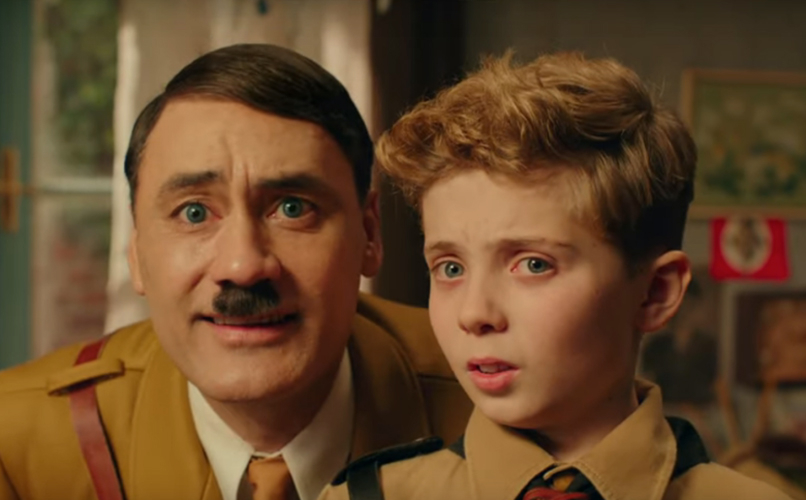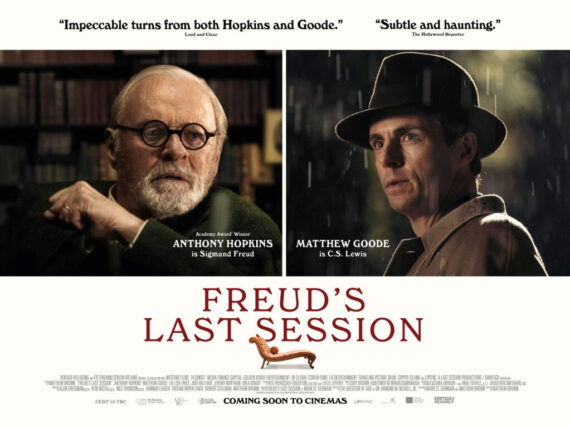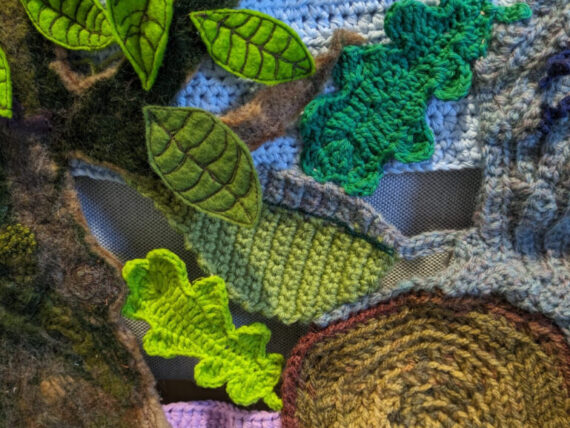Helen Tope reviews Jojo Rabbit, showing in our cinema until Thursday 6th February.
A perfect satire on the cost of war, Jojo Rabbit tells the story of World War II from the perspective of a 10-year-old boy.
Jojo (played by Roman Griffin Davis) lives with his mother, Rosie (Scarlet Johansson) – his father is still fighting in the war, and Jojo hopes it is a war that Germany will win. Soaking up nationalist ideas like a sponge, Jojo has no doubt that he is on the right side of history. His mother, who forms part of the resistance, tries to widen his gaze to the beauty and suffering all around him. Jojo, with the stubbornness of youth, clings to his ideals. Hitler is a god, but more than that, Hitler is his friend.
Based on the novel ‘Caging Skies’ by Christine Leunens, Taika Waititi makes one crucial change to the screenplay. He adds another character, an imaginary friend for young Jojo. His friend is none other than the Fuhrer himself, Adolf Hitler.
Played by Waititi, Adolf in the boy’s imagination is not the architect of a terrifying regime. He builds Adolf from his own limited experience – more than friend, but not quite a father substitute. Waititi’s Adolf is childish, petulant and cruel. He is also very, very funny. The relationship between Jojo and Adolf is beautifully drawn by Griffin Davis and Waititi. This element of the film has produced a great deal of criticism, but the purpose of comedy in Jojo Rabbit is not to laugh at monsters. Waititi makes it clear that there is far too much at stake for that.
In Jojo Rabbit, we join the Third Reich in its third act. As the war rumbles on, the Nazis have a problem in selling their propaganda to a population who are experiencing the hardships of war and none of the glory. The answer is to go smaller. With an emphasis on ritual, uniform and games, Hitler Youth becomes a factory churning out the next generation of Nazis. Raised on these ideas from an earlier age, this generation breathes in the air as if born to it. While adults can be broken, children can be moulded.
Conscription into Hitler Youth is mandatory, and the rag-tag group that Jojo finds himself in, is led by Captain Klenzendorf (Sam Rockwell) – a one-eyed officer whose commitment is half-hearted at best. He wows the kids with his straight shooting, but delivers the spiel with all the enthusiasm of a holiday rep in September. The game is up; everyone is on borrowed time.
The danger of not participating is all too apparent. Townspeople found guilty of aiding the enemy are executed, their bodies are displayed in the town square as a warning. The regime may not be at its height, but its capacity to reach out and find conspirators has lost none of its power. Jojo’s mother makes him look at the bodies. When asked what they did to deserve such a fate, she replies that they did what they could.
As Jojo learns the basics of Hitler Youth training, he makes friends with another boy, Yorki, (played by Archie Yates) who becomes – after Adolf – Jojo’s second best friend. The fun Jojo and Yorki have, rampaging through the woods with their fellow soldiers, is brought up short when one of the older boys decides to test the young recruits. Finding a rabbit, he holds it aloft and challenges Jojo to prove his worth by killing it. Jojo cannot and runs off to taunts of ‘Jojo Rabbit’. Jojo is devastated: he has already failed the Fuhrer.
In a bid to gain ground, Jojo throws himself into activities – in particular the grenade training. He picks up a grenade, runs and throws the missile. But it lands too close and explodes. Jojo survives, but is wounded and his face marked with welts. Captain Klenzendorf is demoted to office work, where Rosie demands Jojo will join him.
Returning home after a day at the office, Jojo hears noises upstairs. The noise is coming from his sister’s room (who died several years ago). To his horror, a panel in the wall begins to slide open and a hand appears. Jojo’s mother has been harbouring a Jewish girl, Elsa (Thomasin McKenzie). The penalty if Elsa is found is severe – everyone in the household will die. Jojo, tormented by horror and disgust, heads to his room for a conference with Adolf. The answer? Say nothing. Instead, Jojo starts writing a book about Jews. It will be useful research, he tells himself. He draws serpents, devils with coiled tails. As Elsa begins a playful dialogue with the boy, he learns about her life before the war. Bit by bit, she constructs a view of a Jewish person that Jojo finds difficult to reconcile.
What Taika Waititi does throughout the film is to expose the weak points on which the system hinges. When a regime demands absolute complicity, its participants will always fall short. We know what will happen to Elsa if she is found. Jojo has vague notions, but the actuality is something he cannot process.
It is here where humour delivers its biggest blows. Jojo Rabbit doesn’t laugh at the horror, but instead examines the needs of its characters. Men dressed in a little brief authority thrive at the Gestapo; Klenzendorf and his compatriot, Finkel (Alfie Allen) hide their relationship in plain sight, and Jojo imagines a jocular, pally Fuhrer to fill a desperate emotional void. The comedy isn’t in the regime – it’s in the psychology of the people who cling to it.
We are encouraged to laugh at the book burnings, because we then see Elsa plant the words of poet Rainer Maria Rilke into Jojo’s head. Not only is it impossible to kill an idea, it spreads quicker than any fire. We laugh at Jojo’s relationship with Adolf, but it serves to unpick the hyperbole that has taken root in the boy’s mind. It is through the efforts of Elsa and Rosie that Jojo begins to entertain the idea that his friend may not only be wrong – he may not be a friend at all.
Jojo leaves us with a sense of hope, but the film is careful not to finish on too high a note. As 2020 marks the 75th anniversary of the liberation of Auschwitz, Taika Waititi’s exploration of war is cautious in its conclusion. We know the warning signs, but still too many people are willing to disregard them. Not this time, not this person. It couldn’t happen again. Jojo Rabbit reminds us that while imagination is powerful, it is not infallible. There will always be someone pretending to be our friend. Starting the JoJo project in 2010, Waititi was unsure if a film about tyrants would resonate with modern audiences. Ten years on, and Jojo Rabbit finds itself in a climate where these stories are not only relevant, it is crucial that they are heard. The question is now whether we are prepared to listen.
Helen Tope









Comments
No comment yet.